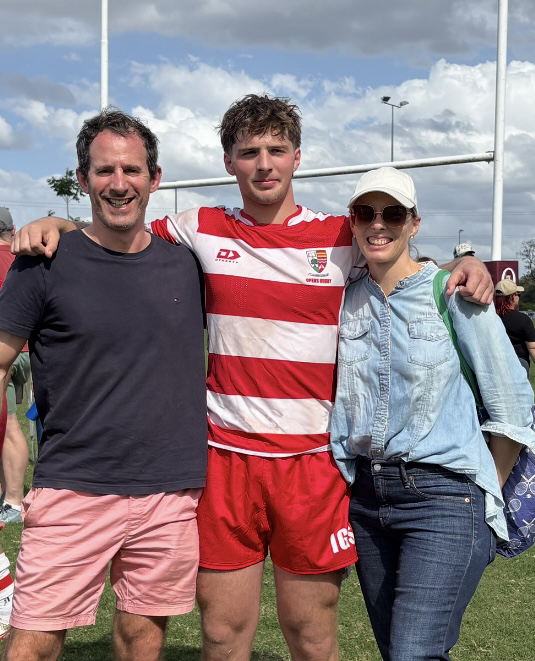From footballer to flanker: Harry’s commitment to concussion research
When Harry Cohen’s family moved to a new country, he also changed codes, opting to follow his father’s path towards a professional career in rugby union. Now Vice Captain of the First XV at Ipswich Grammar, Harry understands that there’s more on the line than just winning when he steps out onto the paddock. It’s one of the main reasons he joined QBI’s Concussion study.

Switching countries and codes
“In the United Kingdom, I was a footballer. But when we moved to Brisbane, I started playing rugby union. I was about seven years old, and I’ve played ever since. I enjoy the physicality of the sport – of being able to make hits,” Harry explained.
“I’m an open side flanker, so my job is to be the first to any breakdown and get my hands on the ball, tackle the ball carrier or pressure him into an error,” Harry said.
Understanding the need for research
“I have had some big head knocks,” Harry said. “I’ve heard about the potential for longer-term consequences, like CTE, after a professional rugby career. If I can contribute to research that changes this outcome – I’m in.”
“I know we need more research to back up the amount of time you need off after a concussion,” Harry said. “The more research we have, the more likely that we’ll have a sideline test that can show whether you’ve had a concussion and need time to recover, or you can keep playing.”
Joining the QBI Concussion study
Harry is a weekly boarder at Ipswich Grammar School, one of the GPS schools participating in the QBI Concussion study. In April 2025, Harry volunteered to join the research. It was Harry’s mum, Melissa, who encouraged him to participate and took him to the baseline testing.
“As a parent of a rugby-playing son, I’m very aware of the risks of concussion in contact sport,” Melissa said. “I was motivated for Harry to be involved in this study to help support his health and safety, and to contribute to research that could improve understanding and management of concussion for other young athletes in the future.
“The enrolment process was easy, and the research team went out of their way to be flexible with appointments and even offered to meet Harry onsite at school.”
Harry was also intrigued to see how the research happened.
“The testing was efficient, and it was interesting to see what the researchers did,” Harry said. “I’ve been involved in another study at Wests Bulldogs involving a mouthguard, but the QBI study is the first one comparing brain scans with blood and saliva biomarkers.

Looking ahead in his career and sport
Harry’s goal is to play professional rugby, but he knows other things are important too. After school, he plans to return to the UQ Rugby Colts program, apply for a junior academy, and one day, play in the United Kingdom. He’s also passionate about pursuing a career in psychiatry.
As Harry prepares for the GPS rugby finals and focuses on achieving his academic goals, he’s already helping to shape the future of player safety. His involvement in the QBI Concussion study reflects a growing awareness among young athletes that protecting the brain is just as important as training the body. Whether he’s pursuing a professional rugby career or a career in psychiatry, Harry’s commitment to research and resilience on the field make him a standout in both sport and science.
How do you get involved in the QBI Concussion study?
If you’re inspired by Harry’s commitment, are a student aged 14 to 19 years at a GPS school in Queensland and play rugby, basketball, or swim competitively, you can volunteer for the QBI Concussion study. You’ll find more details on QBI’s website.
